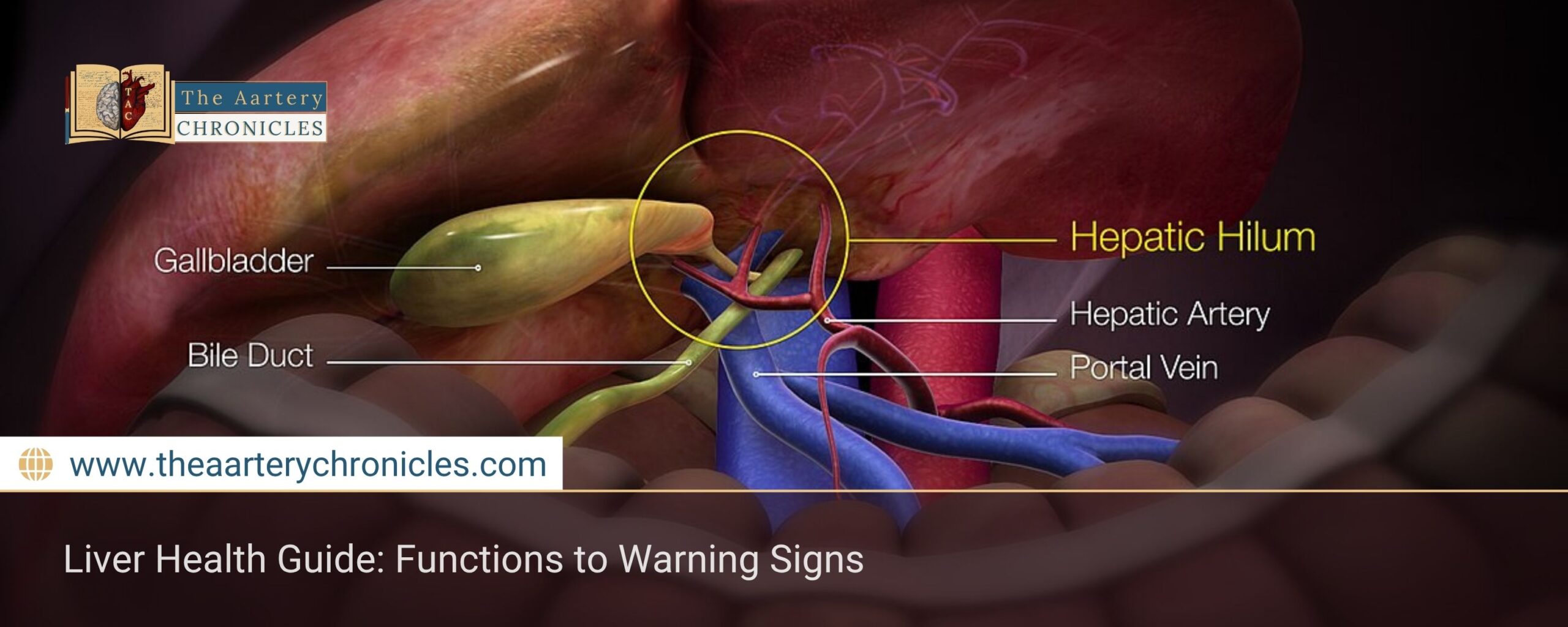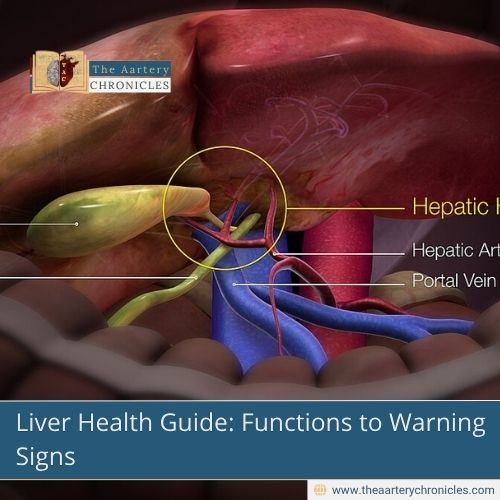

Liver Health Guide: Functions to Warning Signs
Introduction
The liver is one of the largest organs of the human body that serves as a “factory that produces products as well as releases toxins.” According to the National Institutes of Health, the liver can regrow itself after up to 90% of the organ has been surgically removed. This article delves into the crucial functions of the liver, common causes of its damage, early signs of disease, and how nutrition can support liver health.
Some of the important functions of the liver include
The liver is one of the most vital organs in the human body, often described as the body’s natural laboratory and detox centre. It performs hundreds of essential functions that keep us alive and healthy, ranging from regulating blood composition to supporting digestion and immunity. Among its many roles, some of the most crucial include:
- Producing Vitamin K-dependent Clotting factors
- Producing hormones
- Cholesterol metabolism and production
- Glucose storage and metabolism
- Toxin removal and purification of blood
- Storage of blood
- Producing proteins, etc.
Common causes of liver damage
While the liver is capable of remarkable regeneration, it is also highly vulnerable to damage. Our present lifestyle and dietary habits, combined with certain external and internal factors, place immense stress on this vital organ. Liver injury can arise from multiple causes, including:
- Our present lifestyle and food habits are one of the major factors contributing to liver damage.
- Toxins
- Alcohol consumption
- Drug overdoses, such as acetaminophen overdose
- Pregnancy
- Viral infections such as Hepatitis A, B, D, E
- Epstein-Barr virus infections
- Cytomegalovirus infections
- MASLD- Metabolic dysfunction-associated steatohepatitis, etc
Tips to improve liver health
Although several factors can harm the liver, the good news is that many of them are preventable. By adopting healthier lifestyle choices and being mindful of risk factors, one can significantly reduce the chances of liver damage and promote long-term liver health. Some effective ways to protect and strengthen the liver include:
- Limit alcohol consumption: Excess alcohol is a major factor linked to causing fatty liver and thereby leading to liver damage and liver cirrhosis.
- Milk thistle & Turmeric: Both milk thistle extracts and turmeric are known to be anti-inflammatory and reduce the burden on an inflamed liver
- Maintain a healthy weight: Make sure to maintain an optimum Body mass index by maintaining your body weight as per your height measurement to ensure lesser adipose deposits and hence better liver function.
- Look out for family-linked risk factors: In case your near and dear ones in the family are prone to liver diseases or dysfunctions of any kind, make sure to take precautionary measures so that you do not develop the same.
- Consume foods rich in Vitamins A, C and E: These provide antioxidants that reduce inflammation, thus benefiting the liver.
Nutrition and Liver Health
What you eat plays a vital role in supporting liver function. A diet rich in leafy greens, whole grains, healthy fats (like those from nuts and olive oil), and lean proteins can aid liver detoxification and reduce fat accumulation. Avoiding processed foods, excess sugars, and trans fats can significantly reduce the risk of fatty liver disease. Hydration and fibre-rich foods also support digestion and reduce toxin load on the liver.
Recognising signs of liver disease
Most of the time, there are no symptoms in the early stages. However, it may begin with acute hepatitis, which progresses to become chronic. Several causes of liver disease may begin with the onset of acute symptoms that can be vague at times and tend to include:
- Pain in the upper abdomen
- Fatigue
- Malaise
- Loss of appetite
- Nausea
Symptoms may appear when liver function begins to decline significantly. And this may happen in the later phases of liver disease. One of the primary consequences of declining liver function is impaired bile flow within the biliary tract, leading to symptoms such as:
- Weight loss
- Jaundice
- Dark coloured urine
- Pale coloured stool
- Digestive issues
- Pruritus
Conclusion
The liver is an important and yet one of the most neglected internal human organs that bears the brunt of our unhealthy habits and lifestyle. Following the simple methods listed above, we could help our largest internal organ perform its activity at its prime.
References
- Johns Hopkins Medicine.
- Houston Methodist
- American Liver Foundation
- https://my.clevelandclinic.org/health/diseases/17819-liver-failure
- Liver Disease | Cleveland Clinic
- Guan YS, He Q. Plant Consumption and Liver Health. Evid Based Complement Alternat Med. 2015;2015:824185. doi: 10.1155/2015/824185. Epub 2015 Jun 28. PMID: 26221179; PMCID: PMC4499388.
- Dr Nandini Dayalan
- Medicine and Diseases,Public Health
- 4 August 2025
- 18:00








